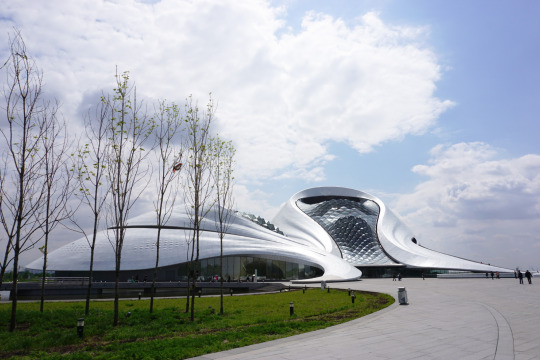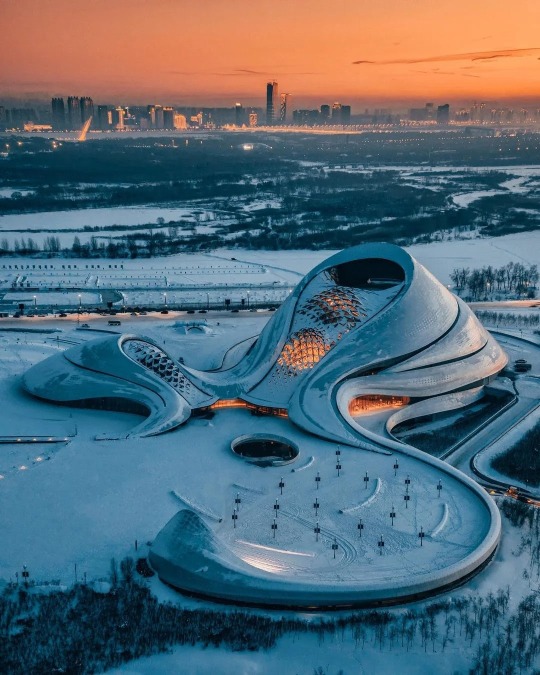#heilongjiang district
Explore tagged Tumblr posts
Photo










harbin opera house
architecture by ma yansong
heilongjiang district (china)
19 notes
·
View notes
Text

Jiagedaqi District, Daxing'anling Prefecture, Heilongjiang.
561 notes
·
View notes
Text




























GESO SYSTEMS' commissioning service cases: Company name: Heilongjiang Junan Pharmaceutical Co., Ltd.
2024-11-29bygeso
GESO SYSTEMS' commissioning service cases:
Company name: Heilongjiang Junan Pharmaceutical Co., Ltd.
Equipment model: BAE-55PM
Debug result: Start-up debugging completed, the machine is running normally
GESO SYSTEMS' commissioning service cases
Commissioning serviceg news & updates. Enter your e-mail and subscribe to our newsletter.
Contact Us https://www.gesosystems.com/
+86 13812618315 / 18317054083400-8850-919
No.26, Lane 38, Caoli Road, Fengjing town, Jinshan District, Shanghai
Mon-Fri: 9:00am-6:00pmSat-Sun: 10:00am-5:00pm
© 2024Copyright ©2021 abc All Rights Reserved
0 notes
Text
Xi calls for continuous efforts in post-flood reconstruction in Beijing, Hebei
BEIJING, Nov. 11 (Xinhua) -- Xi Jinping, general secretary of the Communist Party of China (CPC) Central Committee, Chinese president and chairman of the Central Military Commission, inspected the reconstruction work at the areas affected by floods in Beijing and Hebei Province on Nov. 10. Xi stressed that Party committees and governments at all levels, as well as relevant parties, should faithfully implement the decisions and arrangements of the Party Central Committee to make persistent efforts in post-flood reconstruction so as to ensure that local people could live in comfort and plenty, and have a warm home during the winter. He stressed the need to uphold a people-centered approach, apply systems thinking and make sound planning and rational overall arrangement in a down-to-earth manner. He called for redoubled efforts to close safety loopholes and strengthen weak links. He urged accelerated progress in improving flood control and prevention projects, emergency management, and capacity to prevent, mitigate and relieve disasters.
In late July and early August, rainstorm occurred in North China and Yellow and Huaihe river valleys, causing floods and geological disasters, resulting in heavy casualties in Beijing, Hebei and other places. Xi has been concerned about flood-affected people and paid close attention to work on flood prevention and relief as well as post-disaster recovery and reconstruction. He has made instructions multiple times, requiring relevant authorities to ensure the safety of people's lives and property, as well as to restore work and life order in disaster-hit regions. In early September, Xi visited flood-affected villagers in Shangzhi City, northeast China's Heilongjiang Province. As winter approaches in northern China, Xi came to the severely flood-stricken areas of Beijing and Hebei to visit the affected people, and inspect and guide post-disaster reconstruction work.
On Nov. 10, accompanied by Yin Li, a member of the Political Bureau of the CPC Central Committee and secretary of the CPC Beijing Municipal Committee, Yin Yong, mayor of Beijing, Ni Yuefeng, secretary of CPC Hebei Provincial Committee and Wang Zhengpu, governor of Hebei, Xi visited Mentougou District of Beijing and Baoding City of Hebei to learn about the progress in post-disaster recovery and reconstruction on site.
The Sanjiadian water diversion reservoir is a water control project in the Guanting gorge section of the Yongding River. On the morning of Nov. 10, Xi came here to hear reports on the restoration projects of the Yongding River and other rivers, and the operation of sluices, and learned about the progress in post-disaster recovery and reconstruction. Xi noted that Mentougou, Fangshan and other mountainous areas have high mountains and deep valleys, where continuous heavy rainfall is likely to cause catastrophic mountain floods, and are the key areas for flood control and prevention in Beijing. It is necessary to build and make good use of controlling projects such as reservoirs, as well as improve flood control standards for roads, houses and other buildings in mountainous areas, so as to effectively improve flood control and prevention capacity. It is necessary to sum up historical experience, address prominent problems and weak links, and follow the principle of "storing floodwaters upstream, channeling floodwaters in the middle reaches, and discharging floodwaters downstream to effectively control floodwaters" in accordance with the characteristics of Beijing's river system, speed up the restoration of flood-damaged facilities, and strengthen the construction of key water conservancy projects, so as to provide strong support for flood control in the capital.
After that, Xi took a vehicle to the Miaofeng Mountain Ethnic School. In this year's flood season, the school served as a temporary shelter for displaced residents and the place where flood prevention and relief personnel were stationed. Xi walked into a classroom, where the children were holding a theme class meeting under the guidance of their teacher. The children showed him their handicrafts with the theme of flood control and disaster relief, and reported their experiences and feelings when facing floods. Xi was very happy to hear that. He said that ensuring the flood-affected students can return to school on time is a requirement the CPC Central Committee has imposed for post-disaster recovery and reconstruction. Through the joint efforts of all parties, all schools in the disaster-stricken areas have reopened on time. It is a great relief to see the happy smiles of the children. "Your school successfully avoided risks in this flood, and played a good role as a 'safe island.' It is necessary to make good use of this vivid example, carry out safety education, and strengthen children's safety awareness and ability to avoid risks," Xi said. Children will never forget what they have experienced during this flood control and prevention effort. They should be taught to be grateful, have aspirations, and strive to become a new generation of builders of and successors to the socialist cause.
On the school's playground, he met with the families of martyrs who died on duty, grassroots Party members and officials, members of the public, fire and emergency rescue personnel, employees of state-owned enterprises, volunteer representatives and so on who participated in flood control and disaster relief. Xi noted that during the disaster rescue and relief efforts, grassroots Party members and officials took the lead in the disaster relief effort, demonstrating courage and a sense of responsibility. The People's Liberation Army (PLA), Armed Police, and firefighters bravely stepped forward and marched in harm's way. Employees of state-owned enterprises responded promptly to the call for flood relief. People from all walks of life and volunteers also actively participated in and contributed to the disaster relief work, demonstrating their greater love and compassion in the face of ruthless floods. This has showcased the salient advantage of the socialist system for being able to pool resources together during difficult times. It reflects the spirit of unity and mutual assistance across the country and the people. Many heartwarming stories have emerged from these endeavors. Tragically, some Party members and officials have sacrificed their lives. We must always remember them and make their heroic deeds known to the public. Relevant authorities should take good care of their families.
Approaching noon time, Xi visited Shuiyuzui Village in Miaofengshan Township. At the riverfront platform by the village entrance, Xi was briefed on the situation in the village. Subsequently, he walked around to inspect the looks of the village, learning about the progress of recovery and reconstruction of its infrastructures. He emphasized that after the floods, it is imperative to invest heavily in restoration and significantly improve the resilience of water conservancy facilities and flood prevention infrastructure. It is essential to adhere to a people-centered approach and make plans scientifically with a long-term view, and closely integrate the recovery and reconstruction with the promotion of high-quality development, the advancement of resilient urban construction, the promotion of rural revitalization, and the advancement of ecological environment. Targeted measures should be taken to comprehensively advance disaster prevention, reduction, and relief capabilities. In particular, efforts should be made to improve the emergency management and organization system at the grassroots level in both urban and rural areas so that the capabilities for disaster prevention, risk-aversion, self-rescue and mutual help can be strengthened.
At the home of villager Li Meng, Xi inquired in detail about the extent of damage to the house, expenses for repairs, and heating conditions. Xi stated that ensuring the safety and heating for the disaster-affected residents during the winter is a challenging task that must be addressed effectively. The winter in north China is long, and it is particularly cold in the mountains. Detailed efforts must be made to ensure heating for every household. For the households ready to move in after housing repairs, reinforcement, or reconstruction have been completed, guidance and assistance should be provided to ensure their winter heating. For those whose housing reconstruction has not been completed yet, measures such as seeking help from relatives and friends, house renting, or government resettlement should be taken to ensure they have warm places to live in.
The local residents warmly bid farewell to the general secretary when he was leaving the village. Xi said to them, "I have been concerned about the people in the disaster-stricken areas. The Communist Party is a party that serves the people and always places the people in the highest position in our hearts. Whether it is emergency relief or post-disaster recovery and reconstruction, we will spare no effort. I hope you will remain confident and work hard to build a better home."
In Zhuozhou, a county-level city under Baoding City hit hard by the severe flooding during this year's flood season, production and life order have been basically restored. On the afternoon of Nov. 10, Xi visited the Yongji Xiuyuan residential compound in Shuangta Sub-district. He first came to the pharmacy and the supermarket at the entrance of the compound, inquiring in detail about the recovery of business operations. He then visited the heating station and inspected the operation of the heating facilities. Xi urged Party committees and governments at all levels to take all necessary measures to help local residents, small businesses and enterprises that have suffered a big loss in this major disaster overcome difficulties. Urban recovery and reconstruction should be based on sound disaster prevention and reduction review and planning, in which full considerations must be given to risk and disaster prevention, such as reserving flood channels and flood discharge areas, upgrading drainage pipe networks, and strengthening the city's operational capabilities.
Xi paid a visit to the home of Dong Caiying, a local resident, inquiring in detail about the water level during the flood, emergency housing, change of furniture and appliances, heating, and related subsidies. Dong replied that with the help of Party officials, the house has been cleaned and repaired before they move in, and there is no problem with heating during the winter. Xi stressed that restoring the living environment of every household and neighborhood is the top priority in post-disaster recovery and reconstruction of urban areas. It is imperative to address loopholes and strengthen weak links and seek further and steady progress in every work, with joint efforts from organizations at the primary level, Party members, officials, neighborhoods, professional workforces from all walks of life and volunteers.
Upon his leaving, Xi talked amicably with the residents of the neighborhood. Xi told them that the disaster was so serious in Zhuozhou that he was concerned about the local residents' conditions every day. He said that he felt quite relieved seeing that the urban public service facilities have resumed operation and that residents' life has returned to normal. Xi said that as the saying goes, nothing can be achieved without undergoing trials and hardships. Under the strong leadership of the CPC Central Committee, as long as everyone is of one mind for joint endeavor, they are bound to live a much better life. The second round of the theoretical study program is underway, Party committees at all levels in the disaster areas should combine the study program with the post-disaster recovery and reconstruction work closely, carry forward the spirit of the fight against flood and disaster relief, ensure that primary-level Party organizations and every Party member and official play a key, exemplary and vanguard role, and examine whether the study program is effective through the results of the recovery and reconstruction and how the people are satisfied with them.
The Wanquanzhuang Village of Diaowo Township is located at a flood detention and storage area in Langouwa. All the 311 households of the village fell victims to the disaster during the flood season this year. Xi took a close look at the recovery and reconstruction work on roads and houses. He walked into a construction site where a house was being rebuilt and learned about the loss caused by the disaster, the progress of the reconstruction work and where the owners were temporarily sheltering. Xi encouraged them to overcome difficulties in unity and rebuild a beautiful and harmonious village.
Villager Yang Peiran's house was not that seriously damaged, and it has been repaired and consolidated, and his family has moved back in. Xi walked into Yang's house and learned about their family income, the expenses on the repair work and the resumption of production. Xi pointed out that repairing, reinforcing and reconstructing houses is the top priority for post-flooding recovery and reconstruction. It now appears that the housing repair and reinforcement have been basically completed and that the heaviest and most difficult task lies in reconstruction. Party committees and governments at all levels should pay more attention to the households whose houses need to be reconstructed, and offer proper places for those who have nowhere to stay or have special difficulties to put up temporarily during the transition period. Concrete and effective measures must be taken to prevent them from returning to poverty because of the disaster.
When bidding farewell, villagers sent their regards to the general secretary loudly. Xi said to the villagers that they suffered tremendously in the flooding disaster that was rarely seen in history, and Xi said that he gave them his condolences. He said that Party committees and governments at all levels are taking a variety of measures to concretely push forward the post-disaster recovery and reconstruction. He expressed the hope that villagers should strive themselves and overcome difficulties to accelerate the pace of recovery and reconstruction and promote rural revitalization with their own efforts.
Xi walked into the farmlands alongside the village to inspect the growth of winter wheat and cabbages. He pointed out that agricultural production is an important aspect of post-disaster recovery and construction. It is not only directly associated with the incomes of villagers but also has a bearing on the national food security. It is imperative to work against the clock to restore the farmlands and agricultural facilities that were damaged in the disaster, ramp up support for supplies of agricultural resources, strengthen the guidance for agricultural techniques, organize and arrange well the agricultural production for this winter and the spring next year, so that a bumper harvest would be secured next year.
The Baigou River is a key waterway in the Daqing River Basin that serves the role of discharging floods. Xi visited the Baigou River control project (the Zhuozhou section) to inspect the development of the project and listened to the report about the post-disaster reconstruction in Hebei Province regarding the key water conservancy projects there. Xi pointed out that the rivers in the Beijing-Tianjin-Hebei region are inter-connected and that flood control and prevention in the region should be considered from an overall perspective to study in an in-depth manner the construction of a flood-control engineering system in the region. It is imperative to stick to systems thinking, coordinate the development of drainage basins and regions, properly tackle the relations between upstream and downstream areas, the west and east river banks as well as the trunk streams and tributaries. Efforts must be made to scientifically organize the construction of reservoirs, waterways, embankment, flood detention areas in accordance with their functions, so as to build up the overall flood-prevention capacity in the Beijing-Tianjin-Hebei region.
On the dam, Xi kindly visited the construction personnel of water conservancy projects and the representatives of the PLA and Armed Police forces, militia reservists and fire rescue teams who had participated in the Zhuozhou flood rescue work. He said, "during this flood relief, all forces and people from all walks of life fought together to build a strong line of defense for flood prevention and relief, to protect people's homes, which has fully demonstrated the strong political strength of our Party and country. The people should thank you, the Party and the government should thank you as well!"
Before returning to Beijing, Xi told those in the company of him on his inspection tour and local officials that under the correct decisions and arrangements of the Party Central Committee, governments and departments at all levels have minimized the loss of the once-in-a-century flood disaster by taking effective measures. Post-disaster recovery and reconstruction involve a wide range of projects and large capital investment. Recently, the central government decided to issue an additional 1 trillion yuan of government bonds to support post-disaster recovery and reconstruction projects and improve disaster prevention, mitigation and relief capabilities. Party committees and governments at all levels and relevant departments must focus on solving real problems by doing their work on a down-to-earth manner, make sound planning and reasonable arrangements, use funds where they are indeed needed, promote high-quality construction of projects so that all projects will be built into popular ones, high-quality ones, and clean ones as well.
Cai Qi, a member of the Standing Committee of the Political Bureau of the CPC Central Committee and director of the General Office of the CPC Central Committee, was on the inspection tour.
He Weidong participated in the relevant activities, and leading officials of the relevant central Party and government departments were also on the inspection tour.
0 notes
Text
District Heating Market Will Grow the Fastest in APAC
The district heating market will power at a rate of 5.6% in the years to come, to touch USD 262 billion by 2030, as per P&S Intelligence.
The key trend in the industry is the use of renewable heat sources, for example bioenergy, solar–thermal, heat pumps, and geothermal, and even waste heat from data centers and industries. At this point in time, the heat produced from renewable sources has just 8% of the worldwide production.

The blend of numerous energy sources is too one of the key trends in district heating. These systems not just put to use renewable sources of energy but similarly work with the waste heat from manufacturing plants and data centers, helping in achieving an advanced energy competence.
With even more modification of the energy sources in district heating systems, the transition on the way to more-innovative systems will accelerate. Examples of these kinds of systems comprise a waste treatment plant in Sweden in Högbytorp generating heat and electricity, accompanied by biogas, compost, and bio-fertilizers.
Europe district heating market had the largest share, of above 36%, in 2022. This was attributable to the increasing requirement for energy, backed by the growing industrial development and urbanization, along with the increasing preference for energy-efficient systems, and regulations of the government to decrease GHG emissions.
The low temperature in utmost of the region for most of the year is similarly one of the factors making Europe the largest market for these systems.
APAC will grow the fastest in the years to come, because of the thriving industries, fast urbanization, and continually altering climate.
Moreover, the growing disposable income and increasing apprehensions associated with the emission of CO2 are the key factors driving this industry in APAC.
Besides, China is the largest market as a result of the massive investments poured in district heating systems, for example the one in Heilongjiang province, supported by the ADB. It will fuss over 1.21 million urban residents in 6 cities.
The residential category will grow at a high rate in the years to come, because of the growing count of households worldwide. With the growing level of growth, there is an increase in the requirement for energy. This drives the transformation of the heating infra, to make it appropriate for delivering energy to modern homes.
They are also lucrative, as the owners share the price of heating a building, and there is a need of only one boiler for the entire building, instead of one per home.
The progressions in smart home technologies are likewise a driver of the growing demand. In cold nations, for example Sweden, Denmark, and Russia, 40–50% of the heating needs of buildings are satisfied by these solutions, which bring about energy efficiency.
It is because of the rapid industrialization, the requirement for district heating systems will continue to grow in the years to come.
0 notes
Text

It was night. Fyodor was watching the dense, uninterrupted traffic on the Blagovechtchensk-Heihe bridge from his house in the vicinity of Kanikurgan. Since the bridge had been built and the agreements made, all the wealth of the Silk Road passed day and night on this road that would irrigate the countries towards the west. It was said that soon the peaceful people of Heilongjiang, and of all China, on the other side of the Amur River, would be able to settle freely on the vast and fertile lands of the Far Eastern Federal District of the Russian Federation. The city of Blagovechtchensk, would probably be renamed after its Chinese name: Hailanpao, the "lake of marine orchids", which would have the merit of bringing a little more poetry to a non-violent invasion. It felt good to repeat to himself that the Chinese families would settle on this side of the shore "without violence". Fyodor had spent the last years of his career running the FSB office in Blagovechtchensk. The initial mission of his regiment had been to guard the border and defend the nation against a possible "yellow tide. This had been the purpose of the 1st Nertchinsk regiment in the days of the Transbaikal Cossacks. In 1689, Count Fyodor Golovin, the Tsar's diplomat, concluded the Treaty of Nertchinsk with China, which defined the eastern border of Transbaikalia. Since then, it had been necessary to fight constantly against the incursions of the Honghuzi, the Chinese bands that [...] https://williamkergroach55.blogspot.com/
1 note
·
View note
Photo

A baroque archway in Harbin, Heilongjiang
#china#heilongjiang#harbin#architecture#archway#chinese baroque#daowai district#russian architecture#northeast china#dongbei#travel#travel photography#中国#黑龙江#哈尔滨
18 notes
·
View notes
Text
公告
全网通告
鉴于当下疫情严重,中国和各国交恶 防止中国断网,国内的网络不能留存, 忧虑自己或感染病毒或打疫苗或死于其他原因,决定在国际互联网上留下足迹 希望网站方面不要删除我的账号,他日,我如遭不测死之后这个账号作为纪念,希望永久保留
姓名:张秘鉷,字铂昊
中国资深宅男 啃老族人士 非著名的新黑五类(弱势群体 无党派民主人士) 居家十余年
曾用名:张必弘(原名) 张钰迪 法号 常弘 洛珠嘉措
烹饪:煎鸡蛋 炒土豆片西紅柿,炒雞蛋 煮饺子 面条 馄饨 豆角炖肉
外文名字: 乔治.亚伯拉罕.托马斯西奥多.特朗普
喬治.亞伯拉罕.潘恩 George. Abraham. Gates
(取自乔治.华盛顿 亚伯拉罕.林肯 托马斯.潘恩)
Adam. Arthur. Caesar /Vladimir. Ilich. Man out Granovsky / Dover Emeritus of Economics. Yaboyahan. Luonilin /Grammy. Haier /فرجينيا. الياور. لورانس/ドラゴンの岛Tarou/宇宙公正な男性の中では/Владимир. Ильича. Человек Левски/Vathia
川山刚夫( 青山刚昌 ,平山郁夫 ,东山魁夷 川端康成 三岛由纪夫,横山大观,鹤野刚士)
性别:男 宗教:佛教 籍贯:龙口 年龄:49 星座:狮子 血型:o文化:初中
喜欢的食品:火锅 肉 凉拌苦菊菜 生日:1978年7月23日 ;
健康
龋齿肥胖近视散光 体质弱 耳朵有时听不请话 塌鼻梁上有疤' 薄 齿肠胃不好 心肌炎 高血脂 脂肪肝 八字脚 有点不讲个人卫生 ) 四级残疾 智商 社交恐惧障碍公共场合恐惧症 性格内向自闭 理解能力差,重度脂肪肝肥胖症等大脑发育不良心室传导阻滞脑积水
2职业:无业 居住地:黑龙江省哈尔滨市道外区南极街 ,毕业学校:哈尔滨南安校/53中(已经没有了)
笔名孤独生/柳孤鸿/龙无极/山野狂夫/江湖不平生/宗嘉儆忱/亚当阿瑟,爱延堂主/方觉恨 外号大蛆(因为玩弄厕所里的大蛆得名)
爱好:听评书卡通片..写诗;写些评论文章 喜欢听的歌曲:新鸳鸯蝴蝶梦救姻缘等 桃花谣
网名:中国第一鹰派;chinakawkisn;紫薇剑张无极 当今国士
喜欢玩的游戏:光荣三 大富翁 中华一番客栈 百鬼夜宴 仙剑奇侠传轩辕剑
喜欢的人: 丛飞 陈 毓 祥 伊能静
喜欢的美女:张延陈慧珊邝文郇佘诗曼/苏菲玛索李盛辛杨露姜岩陈慧琳何晴 高圆圆 沈星 周海媚赵雅芝周涛吴小莉吴丽李小冉吉雪萍金巧巧孙悦孙菲菲贾静雯 彭丹陈法蓉 徐静蕾 马孟庭苇 王思懿 王小丫 伊能静 孙燕姿 恋足癖
2精神伴侣: 佘诗曼 丁柳元
崇尚之人: 特朗普. 华盛顿 蒋介石 袁立,孙海英,志永许 于建嵘 刘小波等
愿望: 自由撰稿人 作家 诗人,病毒防疫
价值观:自由,民主,人权,宪政,法治,平等,公正,均富,博爱
让中国和美国一样伟大, 中国人优先
实现中国最大的利益
。Whole network announcement
In view of the current serious epidemic situation, China and other countries are fighting to prevent China from disconnecting the Internet. The domestic Internet cannot be retained. I am worried that I may be infected with a virus or vaccinated or died of other reasons. I decided to leave a footprint on the Internet and hope that the website will not delete my account. In the future, if I die by accident, this account will be used as a memorial, and I hope to keep it forever
Name: Zhang Mijie, with the word Bohao
Senior Chinese otaku gnaws on old people, non-famous new black category five (vulnerable groups, non-party democrats), has lived at home for more than ten years
Previous name: Zhang Bihong (original name) Zhang Yudi, law name Chang Hong Luo Zhu Jiacuo
Cooking: Fried Eggs, Fried Potato Chips, Tomatoes, Scrambled Eggs, Boiled Dumplings, Noodles, Wontons, Bean Stew
Foreign name: George Abraham Thomas Theodore Trump
George Abraham Paine George Abraham Gates
(Taken from George Washington, Abraham Lincoln, Thomas Paine)
Adam. Arthur. Caesar /Vladimir. Ilich. Man out Granovsky / Dover Emeritus of Economics. Yaboyahan. Luonilin /Grammy. Haier /فرجينيا. الياور. لورانس/ドラゴンの島Tarou/Cosmos Justice な男の中ではими. Человек Левски/Vathia
Takeo Kawayama (Gosho Aoyama, Ikuo Hirayama, Kaii Higashiyama, Yasunari Kawabata Yukio Mishima, Daikan Yokoyama, Takeshi Tsuruno)
Gender: Male Religion: Buddhism Birthplace: Longkou Age: 49 Constellation: Lion Blood type: ○ Culture: Junior high school
Favorite food: hot pot, meat, cold bitter chrysanthemum, birthday: July 23, 1978;
health
Dental caries, obesity, myopia, astigmatism, physique, weak ears, sometimes unpleasant words, there are scars on the bridge of the nose,' thin teeth, poor gastrointestinal myocarditis, hyperlipidemia, fatty liver, a little bit of personal hygiene) fourth-degree disability, IQ, social phobia, public phobia, introverted personality Poor understanding ability, severe fatty liver, obesity and other cerebral dysplasia, ventricular block, hydrocephalus
2 Occupation: Unemployed Residence: Nanji Street, Daowai District, Harbin City, Heilongjiang Province, Graduation School: Harbin Nan'an School/53 Middle School (there is no more)
The pseudonym is the lonely student / Liu Guhong / Long Wuji / the wild husband of the mountain / the rivers and lakes of life / Zong Jiarongchen / Adam Arthur, the host of Aiyan / Fang Juehen nicknamed the big maggot (named because of playing with the big maggot in the toilet )
Hobbies: listening to storytelling cartoons.. writing poems; writing commentary articles favorite songs: new mandarin ducks, butterflies, dreams, marriage, etc. Peach Blossom Ballad
Screen name: China's first hawk; chinakawkisn; Ziwei sword Zhang Wuji current state scholar
Favorite game: Glorious Three, Monopoly Zhonghua Yifan Inn Hundred Ghosts Night Banquet, Fairy Sword and Qi Xia Chuan Xuanyuan Sword
Favorite people: Cong Fei, Chen Yuxiang, Yi Nengjing
Favorite beauties: Zhang Yan, Chen Huishan, Kwong Wen, Charmaine Sheh/Sophie Marceau, Li Shengxin, Yang Lu, Jiang Yan, Chen Huilin, He Qing, Gao Yuanyuan, Shen Xing, Zhou Haimei, Zhao Yazhi, Zhou Tao, Wu Xiaoli, Wu Li, Li Xiaoran, Ji Xueping, Jin Qiaoqiao, Sun Yue, Sun Feifei, Jia Jingwen, Peng Dan, Chen Farong, Xu Jinglei, Ma Meng Ting, Wang Siyi, Wang Xiaoyineng, Xiaoyineng.
2Spiritual partner: Charmaine Sheh Ding Liuyuan
Advocates: Trump, Washington, Chiang Kai-shek, Yuan Li, Sun Haiying, Zhiyongxu, Yu Jianrong, Liu Xiaobo, etc.
Wish: Freelance writer, writer, poet, virus prevention
Politics: identity liberalism, democracy, radical conservatism, reformism, constitutionalism, six people's principles (national democracy, civil rights, the people rule the people and the people enjoy the people), define liberals, democrats, reformers, constitutionalists, rightists, radical reformers
Values: freedom, democracy, human rights, constitutionalism, rule of law, equality, justice, equal wealth, fraternity
No objection to Hong Kong's independence. Recognition of the Republic of China is regarded as Zhengshuo. Oppose the mainland's attack on Taiwan
Make China as great as the United States, Chinese people first
Internal propositions: democratic politics, implementation of constitutional government, local autonomy, judicial independence, separation of powers, freedom of speech, freedom of the press, multi-party rotation system, nationalization of the military, hope that China will become a democratic and civilized country
Being pro-American and pro-Western, advocating the alliance with the United States and Western democracies and China, uniting Japan and South Korea, and reclaiming the lost land
Realize China's greatest interests.
4 notes
·
View notes
Text
Harbin Poly Moon Time, Heilongjiang, China
Harbin Poly Moon Time Interior, Heilongjiang Building Design, Chinese Architecture Photos
Harbin Poly Moon Time
20 Oct 2021
Design: UMA Interior Design
Location: Harbin, Heilongjiang District, People’s Republic of China
Photos by Yanming Chen
Poly Moon Time Harbin
The Poly Moon Time project is located in Harbin. Harbin, as the Moscow of the East, has a special historical process and geographical location, which has created Harbin’s diverse culture and exotic atmosphere. Taking the responsibility of inheriting architectural culture, the designer extracted elements from Harbin’s traditional architecture and constructed a space with memories of the past and modern luxury.
Red bricks are a common texture of the exterior walls of old buildings in Harbin. The designer incorporated the red brick walls as the exterior facades into the interior to evoke memories of the past. The art corridor is hung with photos of the workers in the steelmaking plant, connecting the space with the history of the city and carrying the memory of urban development.
The designers hope that the space can be more connected with the historical field, examining the history of the industrialization process of the city, and creating a video corridor with black and white photos. The brick walls, like cracks in time, tell the common story of the city’s builders — stories of youth and dreams.
Harbin Poly Moon Time, People’s Republic of China – Building Information
Project Name: Harbin Poly Moon Time Project Location: Harbin, Heilongjiang District, China Design Director: Tuanhui Xiong Interior Design: UMA Interior Design Interior Design Team: Donghui Miao, Zhiping Zeng, Wei Su Decoration Design: UMA Interior Design Decoration Design Team: Dandan Chen, Ruibin Xiong, Wenshuai Ma Design Area: 800 sqm
Completion Time: 2020.12
Photography Team: Yanming Chen
Harbin Poly Moon Time images / information received 191021 from UMA Interior Design
Location: Shanghai, People’s Republic of China
New Buildings in Shanghai
Contemporary Shanghai Architecture
Shanghai Architecture Designs – chronological list
Shanghai Building News
Shanghai Architecture Tours by e-architect
Kailong Jiajie Plaza Transformation, Hongkou District Architects: AIM Architecture photo : Dirk Weiblen Kailong Jiajie Plaza Transformation
Harmay Fang Architects: AIM Architecture photograph : Dirk Weiblen Harmay Fang Store in Shanghai
BAN Villa, Jijiadun, near Shanghai, Jiangsu province Architects: B.L.U.E. Architecture Studio photo courtesy of architects office BAN Villa in Jiangsu
Qiantan Center – Emporis Skyscraper Award Design: Kohn Pedersen Fox Associates; Tongji Architectural Design (Group) Co., Ltd. photo © Rex Zou
Shanghai Architect – architectural firm listings on e-architect
Comments / photos for the Harbin Poly Moon Time by UMA Interior Design page welcome
The post Harbin Poly Moon Time, Heilongjiang, China appeared first on e-architect.
0 notes
Photo

Lanterns hanging in a courtyard in Old Daowai District in Harbin, Heilongjiang
#china#heilongjiang#harbin#daowai district#lantern#lanterns#chinese lantern#architecture#traditional architecture#chinese architecture#northeast china#dongbei#travel#哈尔滨#黑龙江#中国
15 notes
·
View notes
Text
Chinese Authorities Paying Citizens to Spy On Christians and Report ‘Illegal Religious Activities’ | BCNN1
Chinese Authorities Paying Citizens to Spy On Christians and Report ‘Illegal Religious Activities’ | BCNN1
China’s communist regime has ordered citizens in the country’s northeastern region to spy on Christians and report any “illegal religious activities,” including preaching and religious house gatherings. Informants will be rewarded with $150 for each tip, according to a report. The administration of the Meilisi Daur District in Heilongjiang Province’s Qiqihar city released a document titled, “The…

View On WordPress
0 notes
Photo

Y este, encontramos un #termoformado fronterizo entre China y Rusia #Repost @davidemonteleonestudio with @get_repost ・・・ Wudalianchi, Heilongjiang province, China, 2015. "Sanatorium for worker". Russian receiving medical and spa treatments in China. More than 300 kilometers from the Sino-Russian frontier, the Wudalianchi Scenic Area has become a new resort of Russians bit by bit because of its increased reputation among Russians plus the advertising and the Sino-Russian cooperation in tourism. It is said that considerable Russian tourists come from the Far Eastern Federal District of Russia where most states are only three or four hours’ drive to Wudalianchi and furthermore climate is similar to that in Wudalianchi. Over the past two years, the Italian photographer Davide Monteleone has been visiting the border areas of China and Russia to investigate the historical, religious, social and economic relationships between the two countries. “The border lies about 6,000km from Moscow and 2,000km from Beijing,” he says. “Chinese and Russians [here] live so far from the central power that I was very curious to see their daily lives. I discovered different cultures mixing together; surviving despite the decisions made by their governments far away.” #russia #china #apeoplesfriendship #davidemonteleonestudio #davidemon #borders #documentary #photography @sonyalpha #alphalovers #photojournalist #photojournalism #fineartphotography #documentaryphotography #reportage
#alphalovers#photojournalism#apeoplesfriendship#russia#termoformado#borders#documentary#photography#fineartphotography#reportage#davidemonteleonestudio#repost#davidemon#photojournalist#documentaryphotography#china
1 note
·
View note
Photo

Reposted from @enby_anarchist "The Commune was able to expand to neighboring districts such as the Heilongjiang (Black Dragon River) and came to include a triangular area bounded by the Amur River to the East, the valley of the river Sungchangho to the West, and the road to Harbin-Hunchun to the South. It encompassed 13,500 square miles and was home to some 2,000,000 people. However, by the beginning of the 1930s, the situation of the Commune began to erode. The Japanese government sent 35,000 imperial troops into Manchuria and installed a puppet government, the Manchukuo in 1931. At the same time, the Korean Communist Party, directed from Moscow, began infiltrating the Commune and systematically assassinating its anarchist leaders. Kim Jwa-jin was murdered in January 1930. Together, the Japanese Army, the North Korean Communist Army, and the Communist Party infiltrators, along with some Chinese troops surrounded the Commune from the outside and inside and eventually destroyed it." ~ Francesco Dalessandro "The Forgotten Anarchist Commune in Manchuria" - - - #antifa #ancom #anarchism #anarchy #commune #communism #kpam #state #socialism #marx #marxism #makhno #malatesta #kropotkin (hier: FAUD-Lokal "V6") https://www.instagram.com/p/CLmWmSdFB9T/?igshid=eofe7lfqcevs
#antifa#ancom#anarchism#anarchy#commune#communism#kpam#state#socialism#marx#marxism#makhno#malatesta#kropotkin
1 note
·
View note
Text
Friday, January 15, 2021
DC locks down a week before inauguration (AP) All through downtown Washington, the primary sound for several blocks was the beeping of forklifts unloading more fencing. There were no cars or scooters and seemingly no tourists Wednesday, just the occasional jogger and multiple construction crews at work. The U.S. Capitol that proved such a soft target last week was visible only through lines of tall, black fence. Two blocks from the White House, a group of uniformed National Guard troops emerged from a tour bus and headed into a hotel as a state of lockdown descended on Washington that will last through the Jan. 20 inauguration. More than 15,000 National Guardsmen from multiple states, some of them armed, will be in Washington. “Clearly we are in uncharted waters,” said Washington Mayor Muriel Bowser. The FBI has warned that armed protests by violent Trump supporters were being planned in all 50 state capitals as well as in Washington for the days leading up to the inauguration of President-elect Joe Biden. Between the pandemic and the security threat, Bowser is flat-out asking people not to come to the District of Columbia for the inauguration.
Republican Party faces rage from both pro- and anti-Trump voters (Reuters) After riots at the U.S. Capitol by President Donald Trump’s supporters, the Republican Party is facing defections from two camps of voters it can’t afford to lose: those saying Trump and his allies went too far in contesting the election of Democrat Joe Biden—and those saying they didn’t go far enough, according to new polling and interviews with two dozen voters. And the choice confronting party leaders as they ponder a renewed impeachment effort—whether to continue backing Trump or make him a pariah—will almost certainly cost the party voters it needs to win future elections, Republican party officials and strategists say.
A tinderbox (The Media Today) Sam Lessin, an early Facebook staffer, wrote at The Information that “the move by social networks to deplatform President Trump last week was the right call.” But he added that the moment will be “remembered as a watershed moment for the history of free speech and the globally open internet. It has the potential to be a tinderbox that undoes the core of the internet as we know it.” Lessin says the moves will “create intense pressure to censor private messaging (starting with email) and that other countries will “now have a very legitimate argument they need their own control” of information platforms, and even the internet itself.
Defiance of virus dining bans grows as restaurants flounder BORING, Ore. (AP)—A line formed out the door during the lunch rush at the Carver Hangar, a family-owned restaurant and sports bar, and waitresses zipped in and out of the kitchen trying to keep up with orders as customers backed up in the lobby. Indoor dining has been banned in much of Oregon for nearly two months, but the eatery 20 miles southeast of Portland was doing a booming business—and an illegal one. The restaurant’s owners, Bryan and Liz Mitchell, fully reopened Jan. 1 in defiance of Democratic Gov. Kate Brown’s COVID-19 indoor dining ban in their county. “We’re not going to back down because our employees still need to eat, they still need that income,” said Bryan Mitchell, as customers ate at tables spaced 6 feet apart. “The statement that we’re making is, ‘Every life is essential. You have the right to survive. Nobody should tell you what you can and cannot do to provide for your family.’” Even as coronavirus deaths soar, a growing number of restaurants in states across the country are reopening in defiance of strict COVID-19 rules that have shut them down for indoor dining for weeks, or even months. Restaurants can serve people outside or offer carry-out, but winter weather has crippled revenues from patio dining.
Colombia struggles to keep social leaders safe (AP) Just taking a walk in the streets of Colombia’s capital can feel dangerous for Luz Nelly Santana. The Afro-Colombian community leader always wears a bulletproof vest. And she’s followed by a bodyguard assigned by the government. “I get death threats on the phone every month,” Santana said, “and once a man entered my office and said he was going to kill me.” Santana, who runs an organization that helps community leaders fleeing violence to settle in Bogota, is one of more than 3,700 activists given some sort of protection from Colombia’s government. The country is widely seen as one of the world’s most dangerous places to be a community leader or advocate for human rights or environmental issues. Last year 120 community leaders were murdered in Colombia according to the U.N.’s High Commissioner for Human Rights. Decades of bloody civil conflict involving government forces, leftist guerrillas, right-wing paramilitaries linked to landowners and powerful drug trafficking groups have created an atmosphere in which many factions feel little hesitation at trying to kill or intimate those who oppose them.
‘At 6 p.m., life stops’: Europe uses curfews to fight virus (AP) As the wan winter sun sets over France’s Champagne region, the countdown clock kicks in. Laborers stop pruning the vines as the light fades at about 4:30 p.m., leaving them 90 minutes to come in from the cold, change out of their work clothes, hop in their cars and zoom home before a 6 p.m. coronavirus curfew. Forget about any after-work socializing with friends, after-school clubs for children or doing any evening shopping beyond quick trips for essentials. Police on patrol demand valid reasons from people seen out and about. “At 6 p.m., life stops,” says Champagne producer Alexandre Prat. Trying to fend off the need for a third nationwide lockdown that would further dent Europe’s second-largest economy and put more jobs in danger, France is instead opting for creeping curfews. Big chunks of eastern France, including most of its regions that border Belgium, Germany, Switzerland and Italy, face 6 p.m.-to-6 a.m. restrictions on movement. Overnight curfews have become the norm in swaths of Europe but the 6 p.m.-to-6 a.m. curfew in 25 regions of eastern France is the most restrictive anywhere in the European Union’s 27 nations. Others countries’ curfews all start later and often finish earlier.
Facing New Outbreaks, China Places Over 22 Million on Lockdown (NYT) When a handful of new coronavirus cases materialized this month in a province surrounding Beijing, the Chinese authorities bolted into action. They locked down two cities with more than 17 million people, Shijiazhuang and Xingtai. They ordered a crash testing regime of nearly every resident there, which was completed in a matter of days. They shut down transportation and canceled weddings, funerals and, most significantly, a provincial Communist Party conference. By this week the lockdowns expanded to include another city on the edge of Beijing, Langfang, as well as a county in Heilongjiang, a northeastern province. Districts in Beijing itself, the Chinese capital, also shut down. More than 22 million people in all have been ordered to remain inside their homes—double the number affected last January when China’s central government locked down Wuhan. The flare-ups remain small compared with the devastation facing other countries, but they threaten to undercut the success the country’s Communist Party has had in subduing the virus, allowing its economy to surge back after last year’s slump and its people to return to something close to normal lives.
The rise of Chinese financial technology (Foreign Affairs) China’s emerging dominance in financial technology, known as “fintech,” poses a fundamental problem for the United States. Washington cannot trust that the Chinese Communist Party (CCP) will harness its growing influence in financial markets for the benefit of all. More likely, Beijing will use fintech to occupy the high ground in global commerce, bolster its surveillance state, and lay the groundwork to challenge the U.S. dollar as the world’s reserve currency. The rise of Chinese fintech companies threatens to strengthen the world’s most pervasive surveillance state. The so-called data exhaust from billions of digital transactions supplements existing data from facial recognition, search histories, and social network connections, furnishing the CCP with GPS time and location stamps, transaction histories, travel logs, bank account details, and more. Together, this information allows Chinese authorities to closely monitor and control specific individuals and communities by reducing or canceling access to bank accounts, freezing travel routes, and denying entry to specific locations. Ominously, financial authorities in Hong Kong have recently begun asking banks to report transactions to help authorities identify pro-democracy activists.
“But in America…” (Foreign Policy) Chinese state media is still focused on the dysfunction revealed by the assault on the U.S. Capitol last week. As with Soviet propaganda about U.S. racism, Chinese propaganda is most effective when it goes after genuine U.S. failings. But the media has bent the Capitol story significantly toward Beijing’s own needs. Emerging themes include the chaos of democracy, the righteousness of China’s own censorship, and that the United States is making a mistake by going after China instead of fixing its domestic problems. One theme has especially resonated, though: guns. Like most of the world, the Chinese public views the U.S. attitude toward firearms with horror. The sight of armed marchers baffles people. In China, the issue has tragic salience in the death of Yiran Fan, a talented Ph.D. student in Chicago who was killed on Jan. 9 during a gun rampage.
‘Rent-a-person who does nothing’ in Tokyo receives endless requests, gratitude (Mainichi/Japan) A 37-year-old Tokyo man who says he rents himself out to other people “to do nothing” has been inundated with gratitude from Twitter users. “I’m glad I was able to take a walk with someone while keeping a comfortable distance, where we didn’t have to talk but could if we wanted to,” one user wrote. Another reflected, “I had been slack about visiting the hospital, but I went because he came with me.” Shoji Morimoto has been advertising himself as a person who can “eat and drink, and give simple feedback, but do nothing more,” since June 2018, and has received over 3,000 requests. He has about 270,000 followers on Twitter. Initially he had offered his “rent-a-person who does nothing” services for free, but he now charges 10,000 yen (roughly $96) per request. People rent him for various reasons. At times he will participate in a gaming session to make up numbers, turn up to send off people who are moving away, accompany those filing for divorce, or listen to health care workers who have become mentally unwell due to their exhausting work. It may be the case that somewhere in their hearts, everyone is longing for someone who will cheer them on. It seems that this may be why the “rent-a-person who does nothing”—who doesn’t tell you to “do your best” or that they “support you,” but stays by your side in silence, has seen endless demand.
Fire destroys homes of thousands in Rohingya refugee camps—UNHCR (Reuters) A huge fire swept through the Rohingya refugee camps in southern Bangladesh in the early hours of Thursday, the United Nations said, destroying homes belonging to thousands of people. The U.N. Refugee Agency (UNHCR) said more than 550 shelters home to around 3,500 people were either totally or partially destroyed in the blaze, as well as 150 shops and a facility belonging to a non-profit organization. More than a million Rohingya live in the mainland camps in southern Bangladesh, the vast majority having fled Myanmar in 2017 in a military-led crackdown the U.N said was executed with genocidal intent, charges Myanmar denies.
Lebanon begins all-day curfew as virus spins out of control (AP) Lebanese authorities began enforcing an 11-day nationwide shutdown and round the clock curfew Thursday, hoping to limit the spread of coronavirus infections spinning out of control after the holiday period. For the first time, residents were required to request a one-hour permit to be allowed to leave the house for “emergencies,” including going to the bakery, pharmacist, doctor, hospital or airport. Authorities came under pressure to take a tougher approach after the country’s hospitals ran out of beds with daily infections reaching an all-time high of 5,440 cases last week in the country of nearly 6 million people. Even before the coronavirus, Lebanon was going through an unprecedented economic and financial crisis that has seen its national currency and bank sector collapse and locked depositors out of the savings. Hospitals, long considered among the best in the Middle East, struggled to pay staff, keep equipment running and secure necessary medical supplies as dollars grew scarce. Furthermore, the country has been without a government since the old one resigned in the wake of the catastrophic Aug. 4 explosion at Beirut port, which put a further strain on hospitals, inundating them with injured. At least three hospitals were destroyed.
Central African Republic soldiers repel rebels at capital (AP) Security forces in Central African Republic repelled attacks by rebels trying to seize the capital early Wednesday after intense fighting on the city’s outskirts, officials said, in a major escalation of violence that has rocked the country since last month. At least one Rwandan peacekeeper has been killed, and another injured, according to the U.N. mission in the country. At least 30 rebels have been killed, according to Prime Minister Firmin Ngrebada. The rebels are protesting the re-election on Dec. 27 of President Faustin-Archange Touadera. Following the Jan. 4 announcement of Touadera’s victory, the rebel coalition threatened to take the capital. They had also taken towns in other parts of the country before the election. The army is supported in its battle against the rebels by forces from Rwanda, Russia, France and the United Nations.
Lack of Tiny Parts Disrupts Auto Factories Worldwide (NYT) Automakers braced for turmoil when the pandemic hit. They expected supply chain disruptions and plummeting sales. But they never figured that a year later one of their biggest problems would be PlayStations. Strong demand for gaming systems, personal computers and other electronics by a world stuck indoors has sucked up supplies of semiconductors, forcing carmakers around the world to scramble for the chips that have become as essential to mobility as gasoline or steel. Virtually no carmaker has been spared. Toyota Motor has shut down production lines in China. Fiat Chrysler Automobiles temporarily stopped production at plants in Ontario and Mexico. Volkswagen has warned of production problems at factories in China, Europe and the United States. Ford Motor said last week that it was idling a Louisville, Ky., factory for a week because of the shortage. When Covid-19 hit, automakers slashed orders for chips in anticipation of plunging sales. At the same time, semiconductor makers shifted their production lines to meet surging orders for chips used in products like laptop computers, webcams, tablets and 5G smartphones. “Consumer electronics exploded,” said Dan Hearsch, a managing director at the consulting firm AlixPartners. “Everybody and their brother wanted to buy an Xbox and PlayStation and laptops, while automotive shut down. Then automotive came back faster than expected, and that’s where you get into this problem.”
0 notes